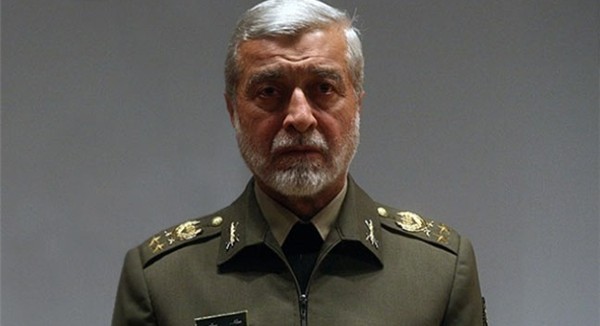The head of Iran’s armed forces said that Tehran does “not pay attention” to United Nations resolutions banning its development of ballistic missiles, and indicated that its missile program is a threat against Iran’s enemies, including Israel, Reuters reported on Thursday, citing Iran’s semi-official Fars news agency.
“Iran’s missile capability and its missile program will become stronger,” said commander-in-chief Maj. Gen. Ataollah Salehi. “We do not pay attention and do not implement resolutions against Iran, and this is not a violation of the nuclear deal.”
“Our missile program is not a threat against our friends but it is a threat against our enemies,” Salehi added. “Israel should understand what it means.”
Although the UN determined in December that Iran violated UN Security Council resolution 1929 with its October test of a precision-guided ballistic missile, the Islamic Republic has never accepted any limits on its ballistic missile program. According to a report by the United States Institute of Peace, “Iran has the largest and most diverse ballistic missile arsenal in the Middle East.” Ballistic missiles are capable of delivering nuclear warheads.
An Iranian official who spoke to Reuters in May 2014 said that when American officials brought up Iran’s ballistic missile program during the early stages of the negotiations that led to the nuclear deal, Iranian Foreign Minister Mohammad Javad Zarif “laughed and ignored the remarks.” After the nuclear deal with Iran was concluded in July, the Islamic Republic announced plans to carry out ballistic missile tests later in the year. Iranian President Hassan Rouhani said soon afterwards that Iran would refuse to abide by any resolution that would limit its ballistic missile development. Iran conducted a second ballistic missile test in November.
Prompted by bipartisan congressional concern that it was failing to address Iran’s violation of the UN Security Council resolution, the Obama administration announced in late December that it would sanction a number of individuals and entities related to Iran’s ballistic missile program. Although the announced sanctions were described by Mark Dubowitz, executive director of the Foundation for Defense of Democracies (FDD), as the “bare minimum,” the White House later delayed their implementation due to pressure from Iran.
The U.S. Department of the Treasury finally announced that it designated entities and individuals involved in Iran’s ballistic missile program on January 17, just after the Obama administration announced on Implementation Day that it would be freeing up $100 billion in Iranian assets that had been frozen due to nuclear sanctions.
Boris Zilberman, deputy director of congressional relations at FDD, wrote on Wednesday that the nuclear deal has opened the door for Russia to assist Iran in developing Tehran’s ballistic missile program. Iran’s “reintegration into the global economy” is leading to closer strategic cooperation between the two nations, which is likely to include the “advancement of [Iran’s] ballistic-missile program” with Russia’s help, according to Zilberman.
Salehi said in September that he was “glad” that the Iranian army was “in the forefront of executing supreme leader’s order to destroy the Zionist regime.”
[Photo: 91177Info / YouTube ]




